All trainings of the type
Accredited
Trainings that offer Continuing Education credits.
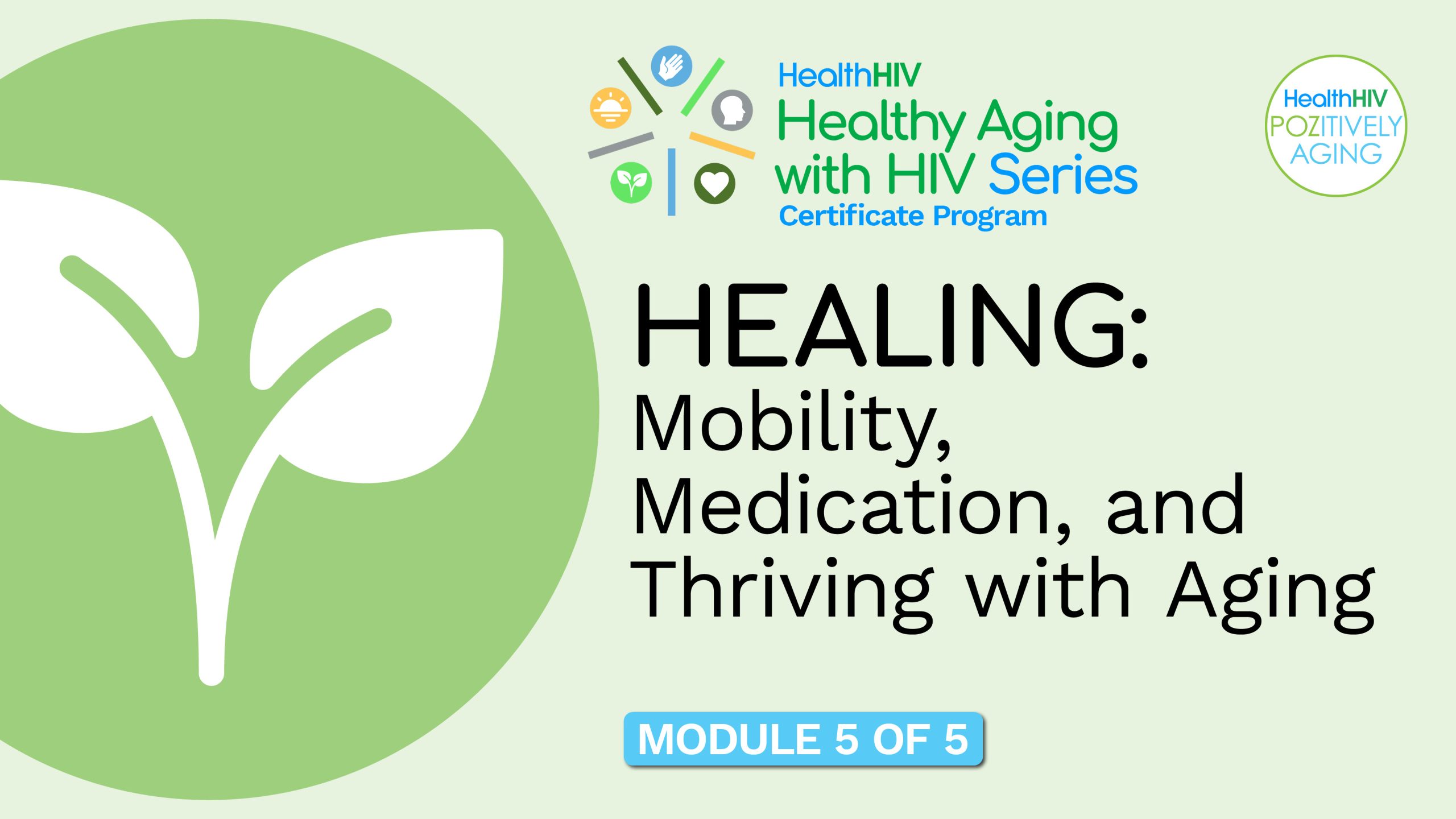
Healing: Mobility, Medication, and Thriving with Aging
January 27, 2026This module focuses on addressing and evaluating frailty, peripheral neuropathy, and polypharmacy among PAWH. Participants will also explore the complexities of polypharmacy (the utilization of multiple medications). The session offers strategies for optimizing care, minimizing drug interactions, and improving overall health outcomes in this growing population.
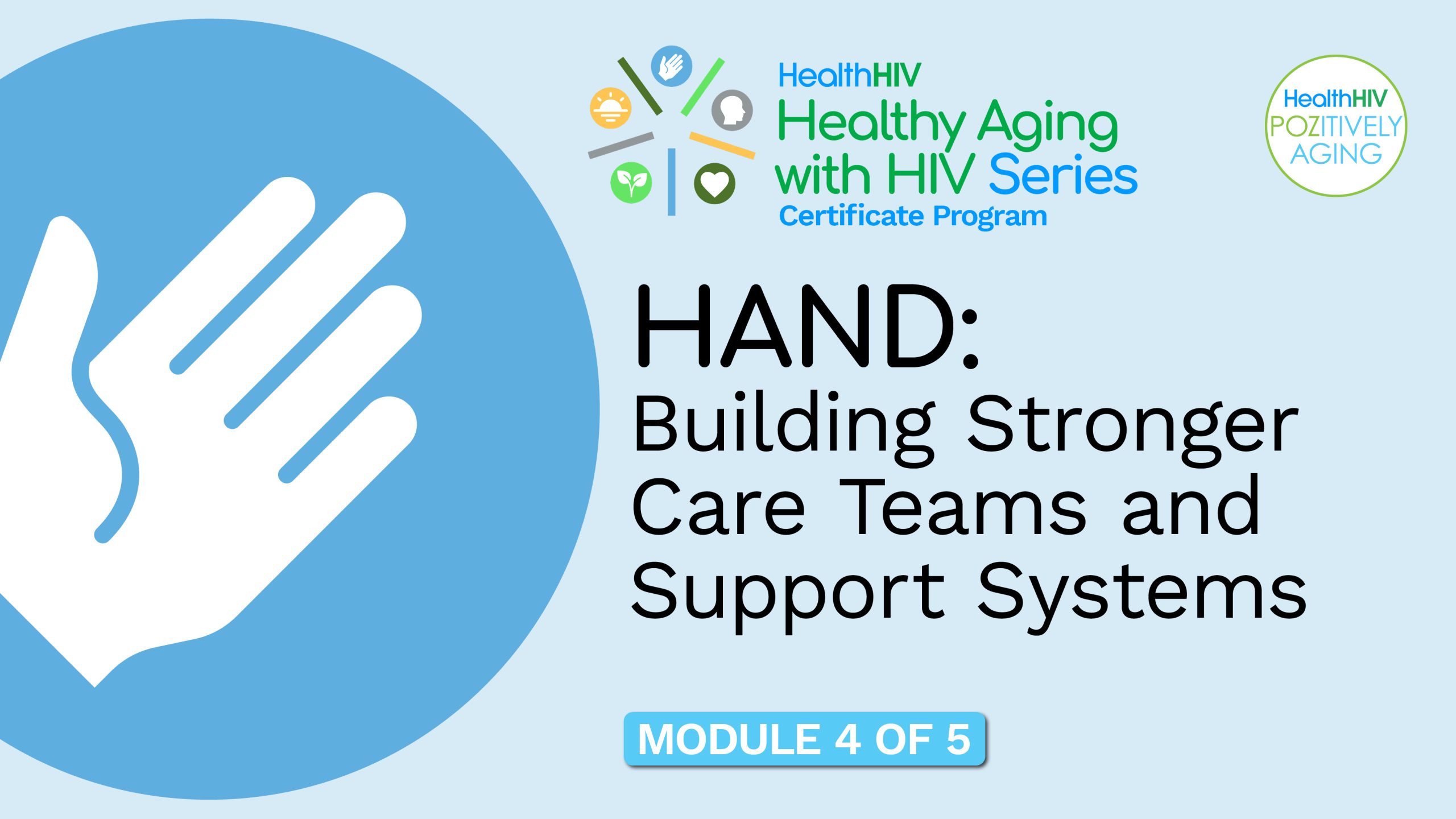
Hand: Building Stronger Care Teams and Support Systems
January 20, 2026This module is focused on facilitating a multidisciplinary team (MDT) approach for PAWH, as well as on supportive services and referrals. This session will explore the importance of integrating non-medical professionals such as Community Health Workers (CHWs), Case Managers and Navigators into the overall care plan for PAWH, as well as effective collaboration tactics to increase patient health.

Beyond the Basics: Introducing the Eight Ps Framework for Inclusive and Effective Sexual History Taking
January 19, 2026Traditional sexual history models don’t fully capture today’s realities of mobility, digital connection, and borderless sexual networks. The new Eight Ps Framework builds on prior models by integrating these modern patterns alongside a more person-centered, equity-focused approach to sexual wellbeing.
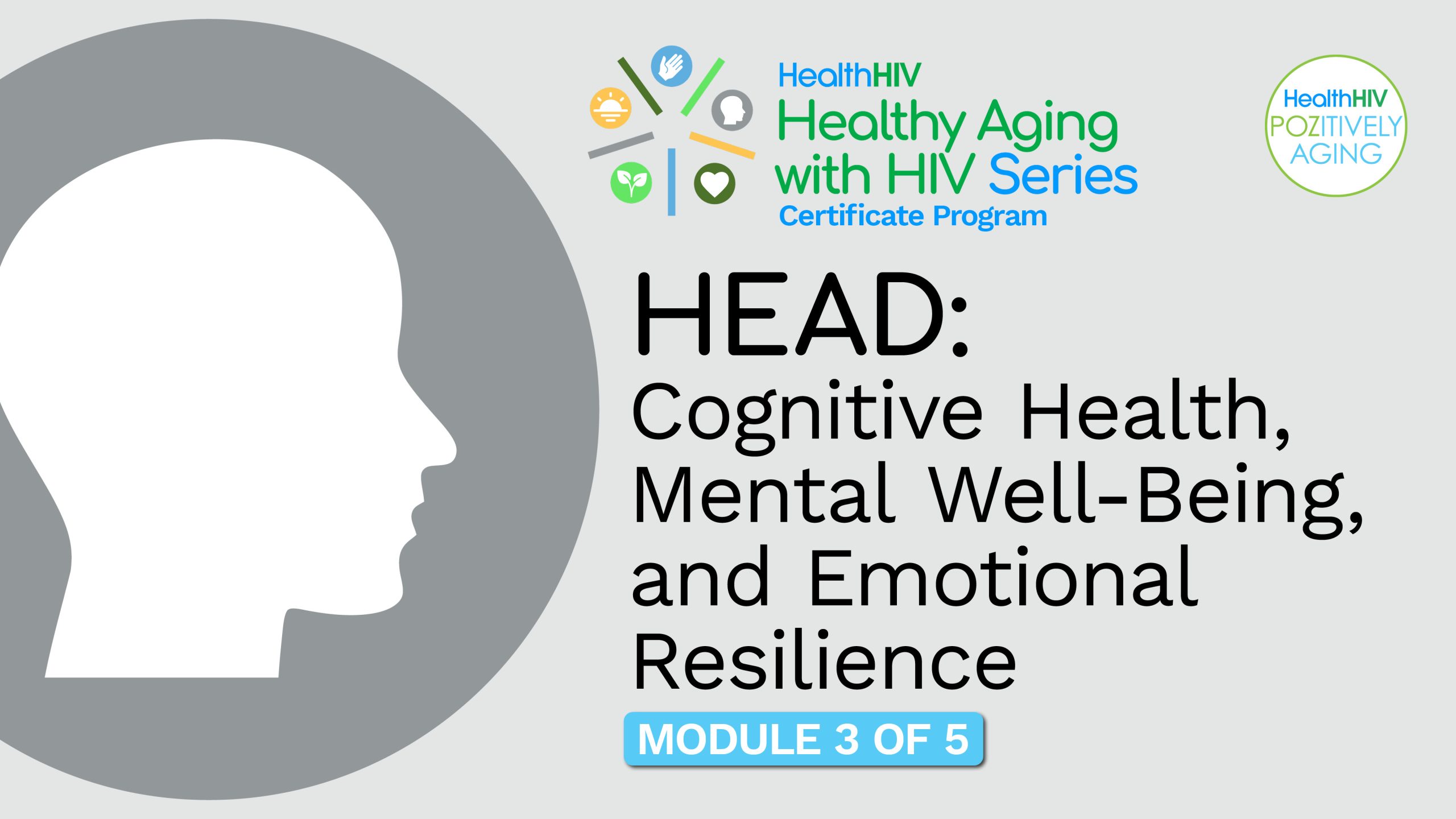
Head: Cognitive Health, Mental Well-Being, and Emotional Resilience
January 13, 2026This module is designed to give providers an overview of cognitive health and related issues for PAWH (including mental health, depression, and stress-related impacts). Participants will gain valuable insights and assessment tools to identify and refer clients and patients to mental health services.

Client-Centered PrEP Conversations: Using a Sexual History Framework to Guide Shared Decision-Making
December 19, 2025This webinar guides the use of a structured sexual history taking framework to support providers, navigators, and CHWs in partnering with clients to determine whether PrEP is right for them and, if so, which modality best fits their lifestyle, preferences, and needs.

HIVPNC Module 9 | Promoting Self-Care and Building Healthy Teams
December 15, 2025Module 9 of the HealthHIV HIV PrEP Navigation Certification (HIVPNC) Program. This module describes practices that frontline workers can use to promote self-care, recognize vicarious trauma, and cultivate a healthy team environment.
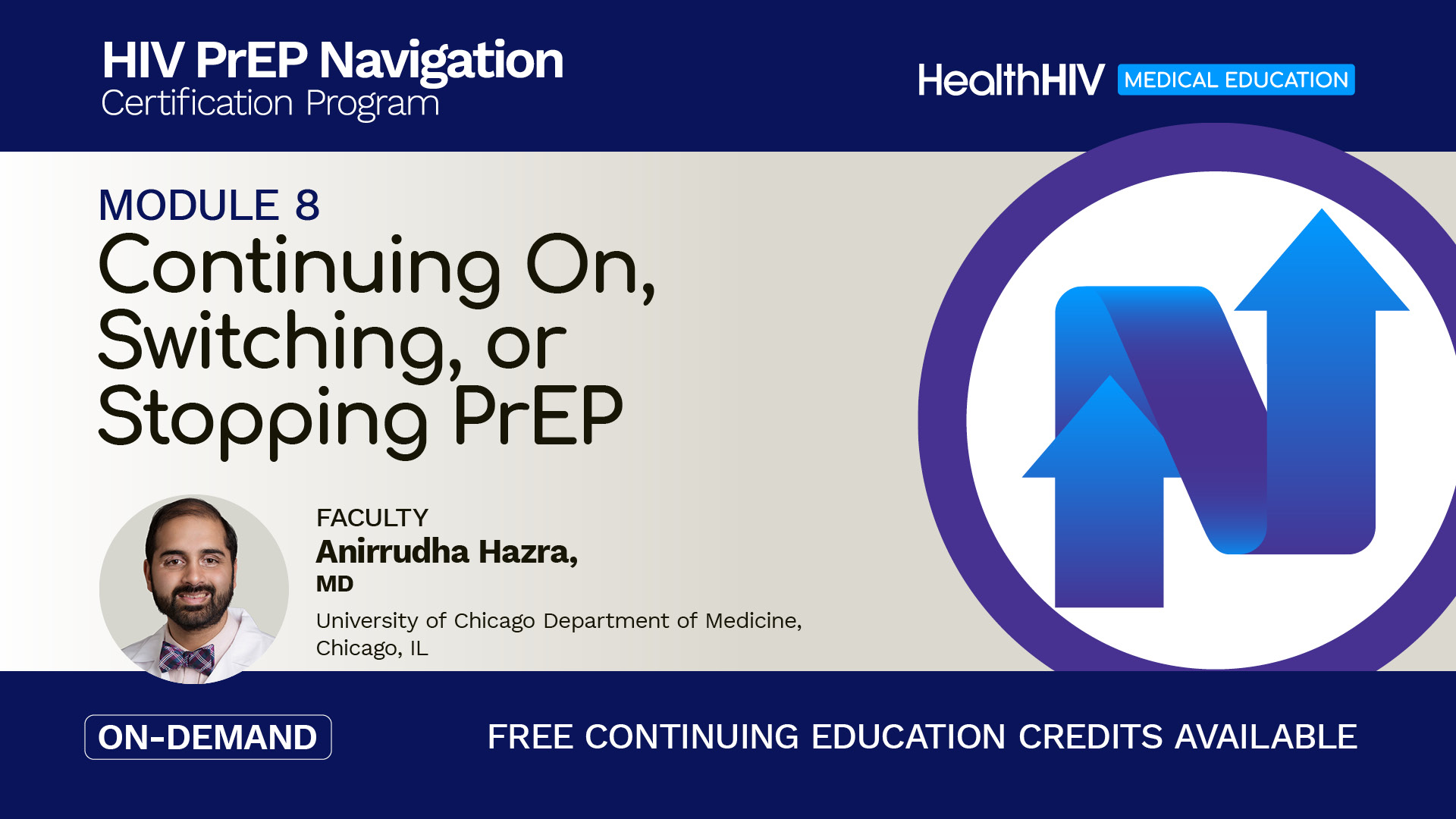
HIVPNC Module 8 | Continuing On, Switching, or Stopping PrEP
Module 8 of the HealthHIV HIV PrEP Navigation Certification (HIVPNC) Program. This module describes routine PrEP care screenings and strategies to support adherence, manage missed doses or refills, and stop PrEP safely.
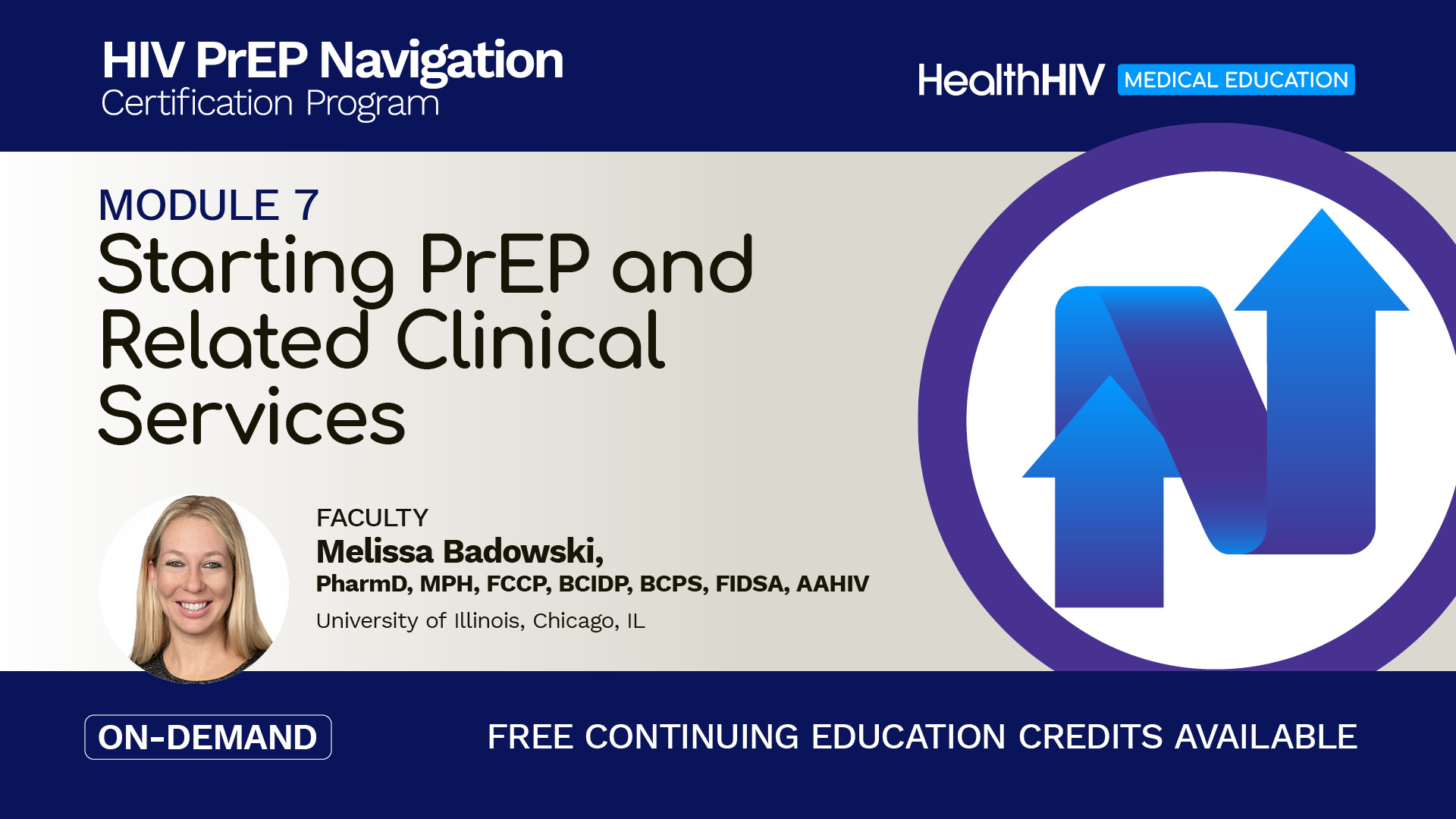
HIVPNC Module 7 | Starting PrEP and Related Clinical Services
Module 7 of the HealthHIV HIV PrEP Navigation Certification (HIVPNC) Program. This module describes the steps involved in starting PrEP, including required tests, acute HIV symptom recognition, dosing, drug interactions, and side-effect management.
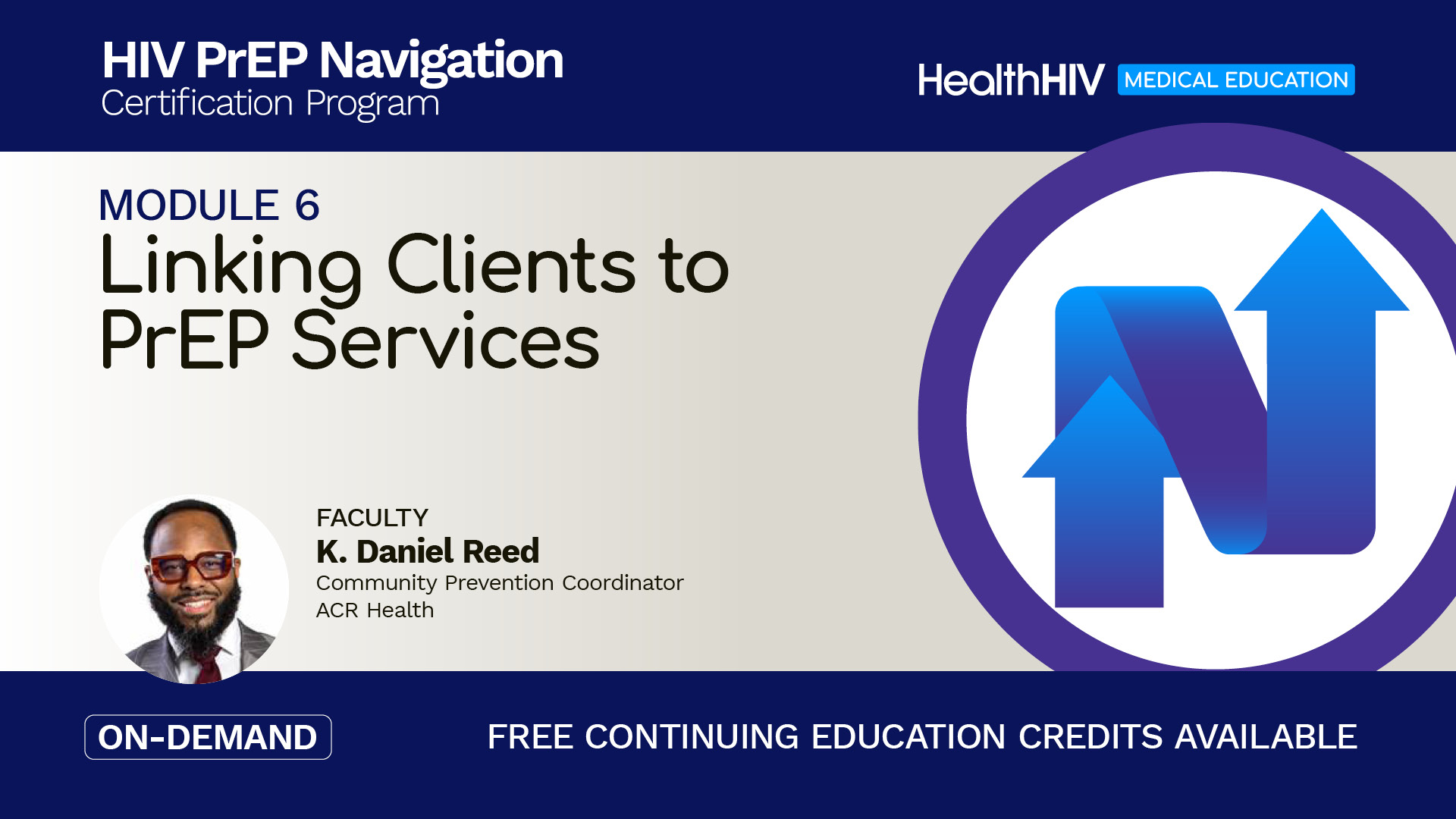
HIVPNC Module 6 | Linking Clients to PrEP Services
Module 6 of the HealthHIV HIV PrEP Navigation Certification (HIVPNC) Program. This module describes methods for locating PrEP-friendly providers and strategies to resolve coverage or access issues before the client’s first PrEP visit.

HIVPNC Module 5 | Reviewing Health Coverage Policies Around PrEP Access
Module 5 of the HealthHIV HIV PrEP Navigation Certification (HIVPNC) Program. This module describes health coverage policies, strategies, and best practices to help clients understand their PrEP coverage options and available resources.
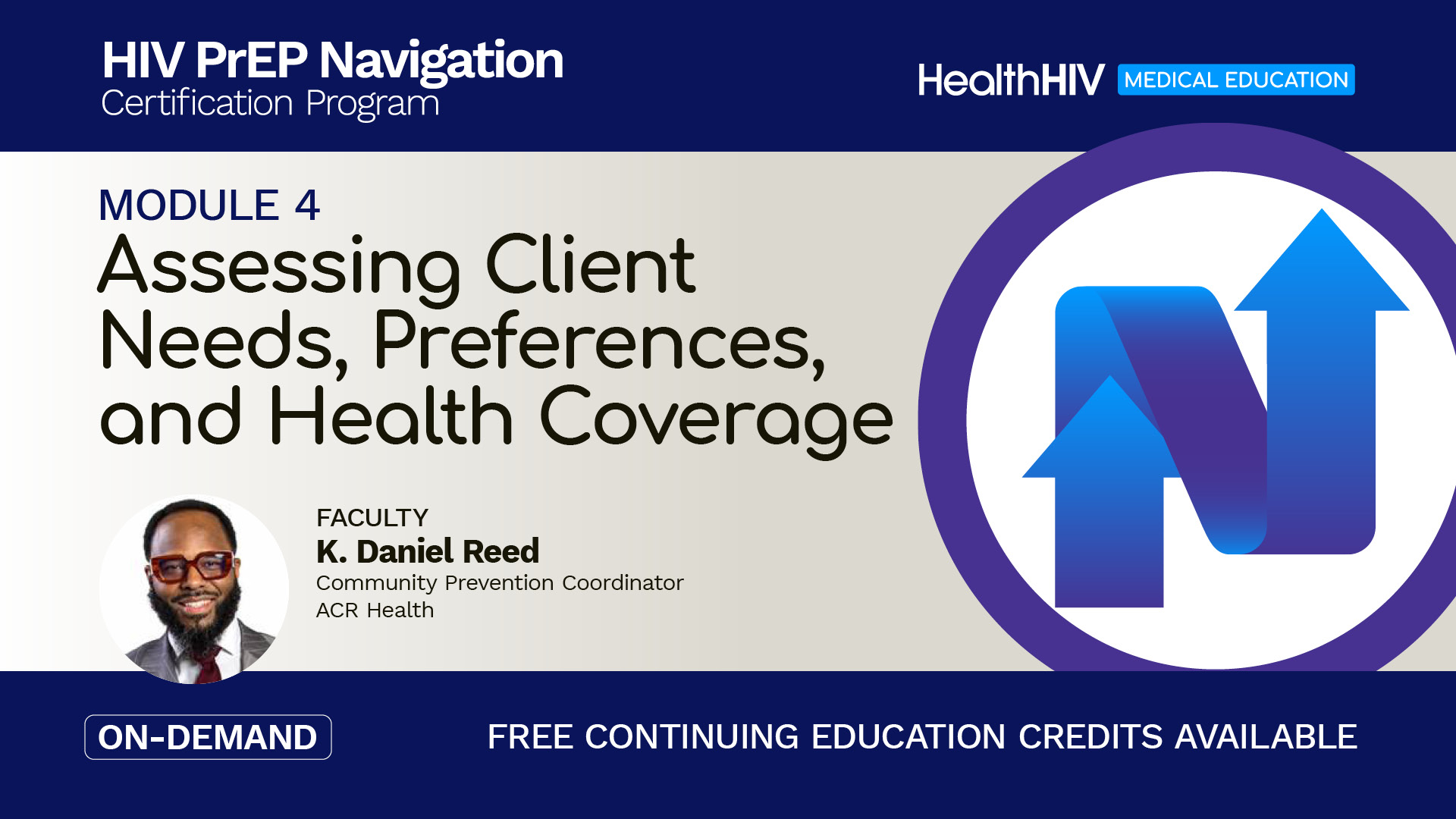
HIVPNC Module 4 | Assessing Client Needs, Preferences, and Health Coverage
Module 4 of the HealthHIV HIV PrEP Navigation Certification (HIVPNC) Program. This module describes relationship-building approaches and assessments that help navigators gather client information, including financial and insurance status.
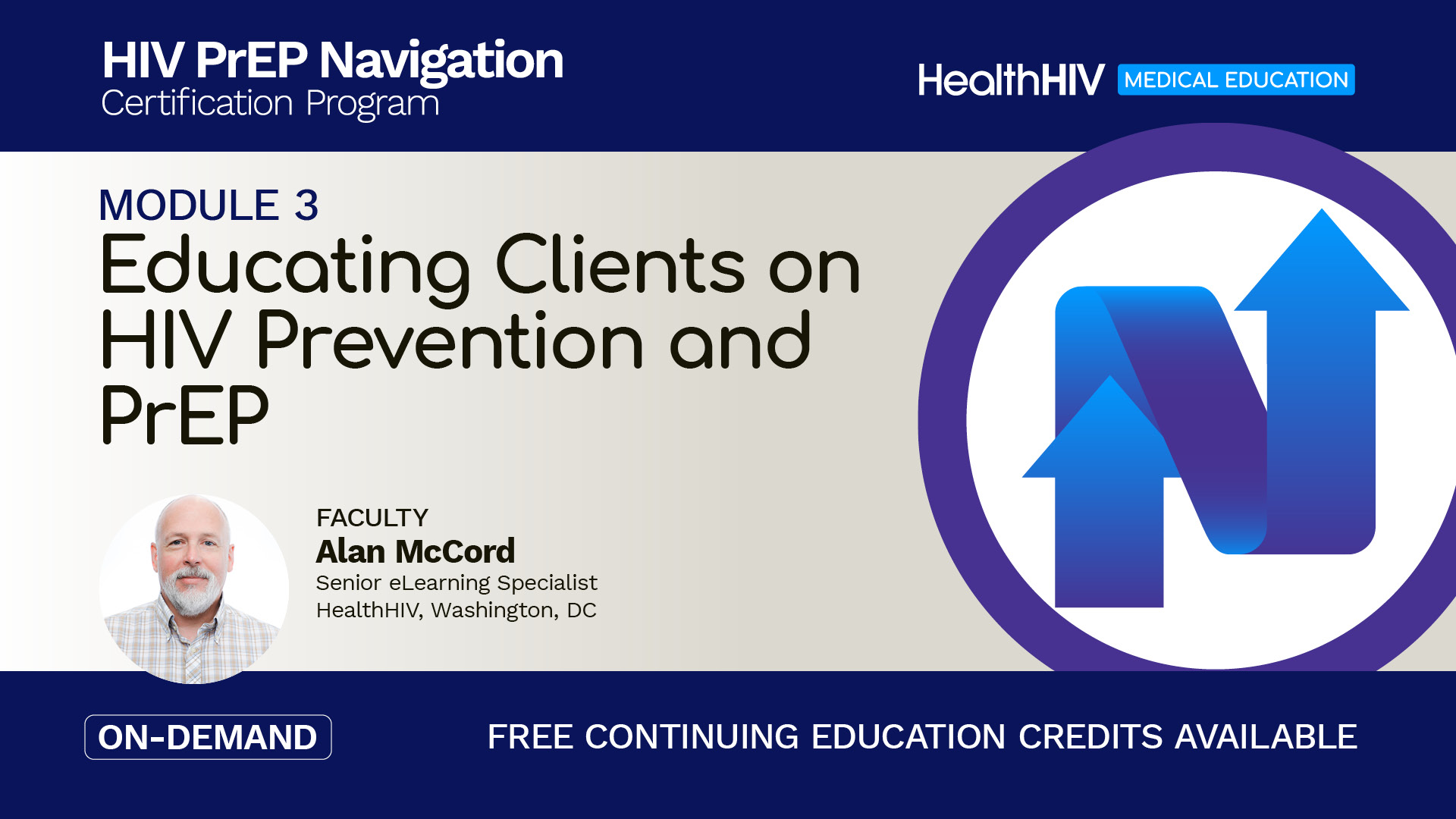
HIVPNC Module 3 | Educating Clients on HIV Prevention and PrEP
Module 3 of the HealthHIV HIV PrEP Navigation Certification (HIVPNC) Program. This module describes the HIV prevention toolbox and the effectiveness, use, and limitations of available PrEP options to support client education.

